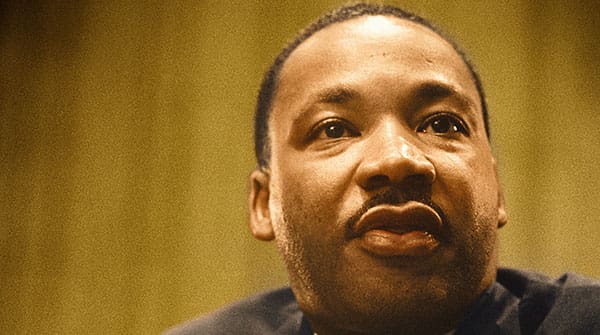Confronting the imperfections of our heroes can be challenging, but we must never resort to cancel culture
 In a world where historical figures are often put on pedestals, it can be disheartening to discover the flaws and imperfections of our heroes. Reflecting on the observations of Holocaust survivor Viktor Frankl, we are reminded that human beings are inherently complex, with qualities that encompass both good and evil.
In a world where historical figures are often put on pedestals, it can be disheartening to discover the flaws and imperfections of our heroes. Reflecting on the observations of Holocaust survivor Viktor Frankl, we are reminded that human beings are inherently complex, with qualities that encompass both good and evil.
This sentiment resonates as we examine the life of Martin Luther King Jr., a revered civil rights leader whose struggles as a human being have recently come to light. The revelations raise important questions about cancel culture, the nature of flawed heroes, and the lessons we can learn from their stories.
Jonathan Eig’s book, King: A Life, sheds light on King’s personal struggles. Despite his extraordinary role as a preacher and civil rights leader, King was not immune to human weaknesses. While deeply troubling, his infidelity and extramarital affairs do not negate his significant contributions to the advancement of civil rights. The revelations challenge us to confront the complexities of human nature and reassess our perceptions of historical figures.
 Photo by Unseen Histories |
| Related Stories |
| Is Justin Trudeau really a progressive?
|
| Sir John A Macdonald and the fog of cancel culture
|
| How a controversial poll obliterated a cartoonist’s career
|
The invasive surveillance conducted by J. Edgar Hoover and the FBI adds another layer to the understanding of King’s flaws. The constant monitoring, wiretapping, and attempts to discredit him reveal the extent of Hoover’s obsession. Paradoxically, Hoover’s relentless pursuit actually worked in King’s favour, as the scandalous reports became less believable. This raises questions about the motives and character of those behind the surveillance and their impact on the public perception of King.
Confronting the imperfections of our heroes can be challenging, leading some to resort to cancel culture. However, it is essential to consider the implications and motivations behind such actions. Cancelling individuals based on historical activities that do not align with present-day social standards reflects more on the cancellers themselves than on the figures being cancelled. Martin Luther King Jr.’s flaws should not overshadow his immense contributions to the fight for justice and equality.
Recognizing the impossibility of finding a perfect human being, we must acknowledge our own imperfections. Leadership expert Don Shapiro emphasizes that one does not need to be flawless to be a leader. Instead, having a genuine intent and making a positive impact on others is what matters. We must avoid allowing our imperfections to hinder our potential for good. Mistakes are part of the human experience, but it is essential to learn from them and strive for continuous improvement.
The popular Apple TV series, Ted Lasso, encapsulates the theme of embracing our struggles and imperfections while pursuing personal growth. Despite our imperfections, the series emphasizes the importance of seeking help and striving for progress. Similarly, Martin Luther King Jr.’s legacy lies not in perfection but in inspiring generations to strive for a better world. Acknowledging our own mixture of good and evil, we have the opportunity to do extraordinary amounts of good by constantly moving towards better.
As we reflect on the life and legacy of Martin Luther King Jr., we are reminded that heroes are not flawless beings. They are complex individuals who inspire us through their achievements, despite their imperfections. Cancel culture fails to capture the essence of human growth and progress. It is through understanding, learning, and moving towards better that we can create a more inclusive and compassionate society.
Martin Luther King Jr.’s flawed humanity should not diminish the significance of his contributions but rather serve as a reminder that we are all capable of both good and evil.
Gerry Chidiac specializes in languages, genocide studies and works with at-risk students. He is the recipient of an award from the Vancouver Holocaust Education Centre for excellence in teaching about the Holocaust.
For interview requests, click here.
The opinions expressed by our columnists and contributors are theirs alone and do not inherently or expressly reflect the views of our publication.
© Troy Media
Troy Media is an editorial content provider to media outlets and its own hosted community news outlets across Canada.